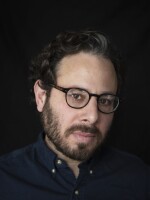LAKSHMI SINGH, HOST:
Here in the U.S., some cities have proclaimed themselves sanctuaries for immigrants who are in the country illegally. But even in those cities, some immigrants are reluctant to call the police fearful they will be deported. It's a problem facing the police department in Newark, N.J., where President Trump's crackdown on illegal immigration is complicating efforts to build trust in migrant communities. NPR's Joel Rose reports.
JOEL ROSE, BYLINE: It's standing room only in a community meeting in the Ironbound section of Newark earlier this month. Dozens of residents pack into the banquet hall above a Portuguese restaurant for a forum on immigration and law enforcement.
VERONICA: (Speaking Spanish).
ROSE: A woman identifies herself only as Veronica because she's in the country illegally. She says people here are so scared that many are afraid to leave their homes. At the podium, Mayor Ras Baraka tries to calm those fears.
RAS BARAKA: We're going to do all we can in our power to protect the residents and neighbors of this city.
ROSE: Newark calls itself a sanctuary city. There are hundreds around the country. There's no single definition, so every city has to decide for itself what that means. Here's how Newark Police Captain Adolph Perez explains it.
ADOLPH PEREZ: Our job is not to go after undocumented immigrants. Our job is not to enforce federal law.
ROSE: But the questions keep coming. Newark resident Ana Olivera (ph) says the police made a lot of people nervous when they set up a checkpoint in the neighborhood. Captain Perez says that was a routine traffic operation. But Olivera says that's not how the neighborhood saw it.
ANA OLIVERA: The checkpoint on Thursday really, really scared many people. I'm talking about people crying and really, really scared.
ROSE: They're frightened because President Donald Trump said he wants to deport millions of unauthorized immigrants and threatened to withhold funding from sanctuary cities unless they help federal authorities carry out those deportations. Newark Mayor Ras Baraka says that undermines efforts by his police department to reach out to immigrants who may now refuse to report crimes or cooperate as witnesses.
BARAKA: This sets us back a lot, so we have a lot of work to do to fix that.
ROSE: That fear is also palpable a few blocks away at a community center in the Ironbound where about two dozen women from Ecuador meet once a week to learn how to knit and to talk.
Most are in the country illegally. Lately, they're worried about what would happen to their children if they're deported. Almost all say they're afraid to call the police. Gloria (ph) asked that we use only her first name because she's here illegally. Recently, she says, police followed her while she bought supplies for a school project for her child including a hot glue gun.
GLORIA: (Through interpreter) They ask me where I'm from and what I was doing. Why was I looking for a pistol? What else did I buy? And what I was using it for? I was scared because of what's happening now.
ROSE: Gloria says the police let her go, and she ran all the way home.
ANGELA GARCIA: It's not enough to just have the sanctuary city policy, but actually really truly engage in community policing.
ROSE: Angela Garcia is a professor at the University of Chicago. To build trust, she says, police departments need to give their officers cultural sensitivity training and higher officers who speak multiple languages. Without that, Garcia says, it's easy for misunderstandings to spread.
GARCIA: Especially for people whose sensitivities around this issue are really heightened given the anti-immigrant rhetoric that's happening at high levels of government.
ROSE: Newark police are battling perceptions, too, the city has worked to improve community relations since 2014 when the Department of Justice found that police repeatedly violated citizens rights. Federal investigators focused on the fact that black residents were stopped and arrested at much higher rates than whites. They noted anecdotal evidence of mistreatment of Hispanic residents, too, but said more study is needed to back that up. Mayor Ras Baraka says police in Newark have made progress since then, but Baraka says the new administration in Washington is making that job harder.
BARAKA: I think ultimately this is about Trump and rumors and ICE and people saying they're going into stores, they're grabbing people off the bus - really driving the community into a frenzy. And we have to address it, absolutely.
ROSE: The city plans to hold more meetings in other immigrant communities in hopes of calming that frenzy. Joel Rose, NPR News, Newark, N.J. Transcript provided by NPR, Copyright NPR.



